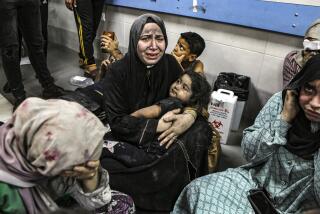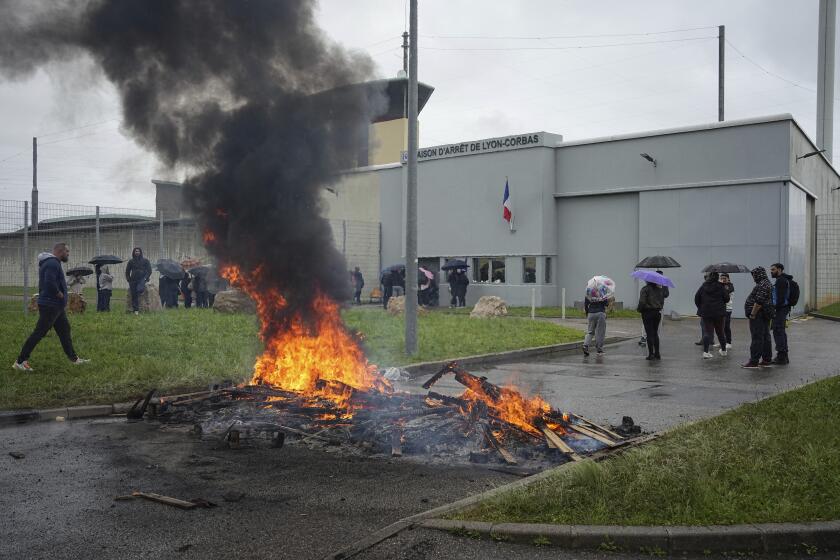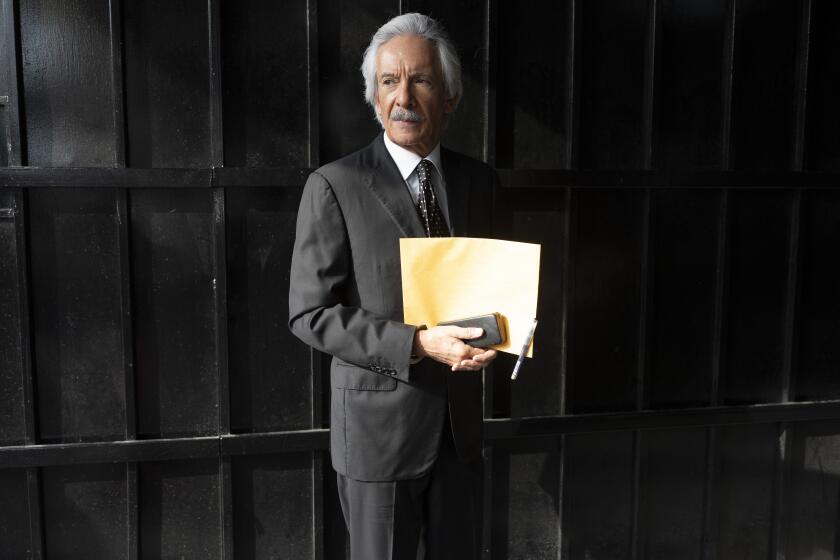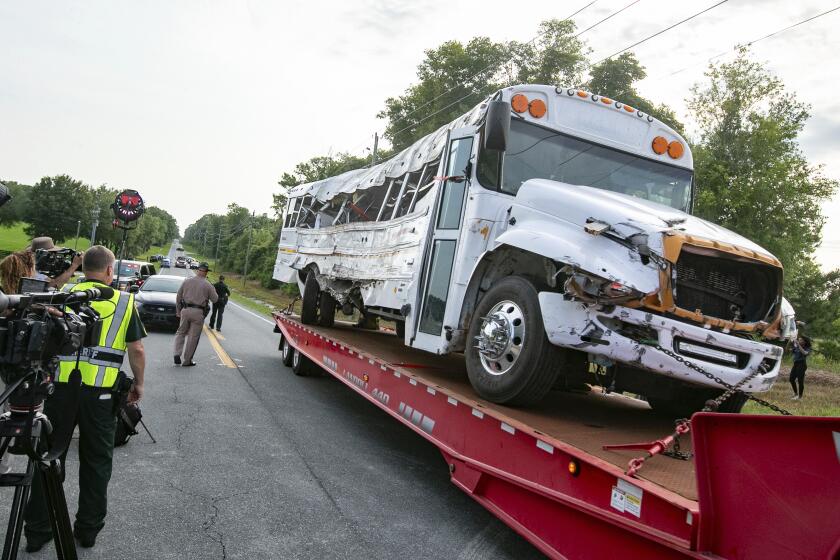U.S.-West African Team Inspects Liberian Port
American and West African military officers ventured into Monrovia’s rebel-held port for the first time Saturday and found aid warehouses looted and corpses floating by the docks.
The U.S. and West African officers negotiated for days to gain access to the port, across front lines.
The access is crucial to opening the way for humanitarian aid to reach Liberia’s capital -- especially the area held by the government, where tens of thousands of civilians, with almost no food, have been eating leaves.
Rebel fighters, clutching rocket launchers and taped-up assault rifles, escorted the West African troops, three U.S. Marines and a U.S. Embassy military attache, Army Col. Sue Ann Sandusky, through the port to view damage from more than two months of rebel sieges.
The West Africans and U.S. Marines, all in green camouflage, surveyed shelled, charred piers, looking for docking for aid ships to deliver desperately needed food. The bodies of victims of the fighting floated next to upended, rusted ships.
Presence of a slowly building West African peace force, and President Charles Taylor’s promise to resign Monday, have helped bring a weak truce to Monrovia, while fighting persists in the countryside.
Vaani Passawe, Taylor’s spokesman, said Saturday, “Our morale has been sapped.”
“The situation is likely to collapse unless some pressure is put to bear” on rebels, Passawe said.
“Once the president leaves, our boys might be stigmatized. If that is the case, you must expect chaos. Hell might just break loose,” he added.
The peace force had 687 troops on the ground in Liberia on Saturday, on its way to a promised 3,250.
The capital remains split, with rebels refusing to allow opening of the port -- and the flow of food -- until peacekeepers deploy in numbers adequate to hold it against Taylor’s fighters.
U.N. workers returned to Monrovia for the first time Saturday after evacuating during fighting in late July. They found that a 10,000-ton stockpile of emergency food had been looted.
More to Read
Start your day right
Sign up for Essential California for news, features and recommendations from the L.A. Times and beyond in your inbox six days a week.
You may occasionally receive promotional content from the Los Angeles Times.






